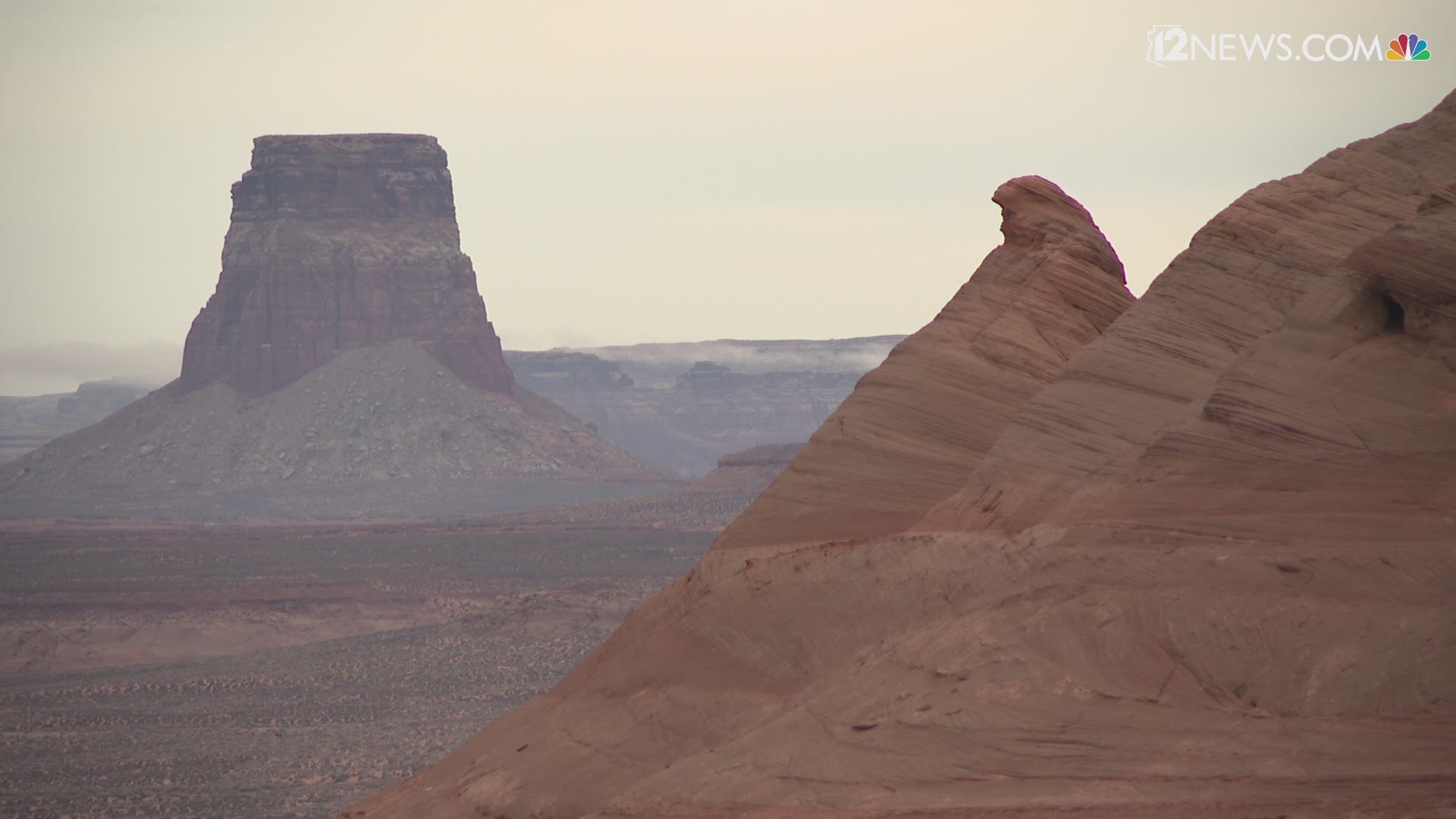NAVAJO COUNTY, Ariz. — Of the roughly 173,000 people living on the Navajo Nation, at least 30% of the homes don't have running water.
That's according to Dig Deep, a non-profit that goes into people's homes on the Nation and installs a water system that provides hot and cold running water to their home.
Washing your hands is one of the easiest ways to prevent the spread of coronavirus, but, "if you don't have running water in your home how are you going to wash your hands successfully," asks Emma Robbins, project director for Navajo Water Project, a branch of Dig Deep.
To complicate matters, residents of the Nation who do not have running water must travel long distances to get to grocery stores or sites where they can haul water. This increases the likelihood of them being exposed to people who have coronavirus or being a carrier of the virus and exposing themselves to others without knowing it.
Frustratingly, residents of the Nation are finding themselves traveling long distances to get water only to find there is no water to take home. "So, you are exposing yourself in vain," says Emma.
COVID-19 is widespread in the Nation. As of Wednesday, April 8, there were 488 cases of coronavirus on Navajo, 20 people had died and 2,221 tests came back negative. Navajo Nation President Jonathan Nez and Vice President Myron Lizer announced on April 9th that they were self-quarantining due to possible exposure.
A church gathering in the small county of Chilchinbeto is believed to be ground-zero for the coronavirus outbreak on the Nation.
"At one point the cases, in terms of people getting sick, were concentrated in one area and that quickly rippled out. What we're seeing on the eastern side of the reservation is exactly what people are seeing on the western side," says Emma.
For now, the Navajo Water Project has turned into a relief organization. They are still delivering water to homes that have already received water systems, but they are also delivering bottled water to homes that don't have systems and they are looking to branch out to other communities that have families that may not have a Dig Deep water system but do have ways of collecting water.
While cases of coronavirus on the Nation are expected to peak in May, Emma says she is proud of the way the Navajo leadership is handling the pandemic thus far. And in an effort to reach non-English speakers on the Nation, The Tuba City Regional Healthcare Corporation has published a video that explains what coronavirus is and how to protect yourself from it in Navajo.
Emma says she's also proud of the Navajo community and how they are coming together to help each other. "It's been really great to see the resiliency and Navajo people coming together to help Navajo people and our Hopi neighbors as well."
If you'd like to help the Navajo Water Project or learn more about it you can head here.

